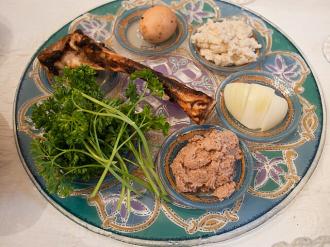When people are interested in any of our programs, I encourage them to come in for a free 20 minute consultation to make sure we are on the same page in terms of what is involved in attaining their goals in health and weight loss. A large percentage of people that come and speak to us do sign up and start the program, but a lot of people don’t. Their reasons vary as to why they choose not to pursue a program. Sometimes it has to do with time or location, but more often than not, is has to do with money. How much is your health worth? It is certainly hard to put a value on it, but without health, we aren’t functional. The basic daily tasks that we are expected to do become difficult or even impossible without health. But how much is that worth to you? As I am sure you already know, it is not always possible to put a monetary valuation on things, but sometimes, health can take a back seat to other things. It often comes down to making a cost-benefit analysis, or trying to see the long term benefits of spending now so I don’t have to spend later. Over the past few weeks, comments by some clients and a few things I saw in health related news, got me thinking.
A brief lesson in economics
Let’s have a little lesson in basic economics. I you have $50 and you enter a store that sells 4 items, you have some choices to make. One item cost $50, one cost $25 and one cost $10 and one cost $5. You can use the $50 to buy one $50 item, or 2 $25 items, or 5 $10 items or some combination of several items. What I decide to do with that $50 and why I make the choices I make is really the basics of economics. Everyone has some type of budget they live on and some have more money and some less, but what we sometimes forget is that decisions with money that might seem prudent in the short term, may affect us negatively in the long term. Organizations like Mesila or private coaches like Mrs. Sassen in Beit Shemesh are well equipped to help you with financial planning. Whatever your situation is, we need to be sure that we put our money in the best places possible and that health should be a prime consideration
Spending on “health” items that don’t work
Two months ago, the Harvard Heart Newsletter ran a front page article about dietary supplements questioning their value and also pointing out their potential dangers. Americans spend 37 billion dollars a year on various supplement. Two thirds of that are for vitamins and minerals. The rest are pills, powders, and tinctures that contain various substances isolated from an array of sources—mainly plants but also animals and microorganisms. Why are these products so popular? Some people believe that our food supply has been stripped of important nutrients, so they take supplements to replace what’s “missing”. Others feel that Western medicine relies too heavily on pharmaceuticals and prefer to take natural substances instead. Unlike drugs, these supplements are not regulated. So they can be sold and promoted basically however the manufacturing company wants. The manufacturer can make certain claims in certain ways that might mislead the public into believing that simply popping this pill or swallowing this drink will fix all that ails you. They all can contain different amounts of the active ingredient or sometimes, they have such a small amount it couldn’t possibly be effective for anything. Some supplements (remember ephedra for weight loss?) have even caused death.
I have met people who don’t want to pay for a dietician to learn how to eat well for health, won’t hire a personal trainer even on a short term basis so they can learn how to do basic exercise, or even join a well-run weight loss group or program. Why? Because it costs money! But, when I checked further, they were spending a lot of money on vitamins and supplements each month together with some medications they also had to pay for. They were spending hundreds of dollars a month that could have been put into things that would truly help their health and well-being and possibly even get them off of their medications too.
Spending money to get sick
Another client of mine is in our weight loss program. She has done well with her weight loss although it goes slowly. We have already discussed the possibility of a continuing program. She could use it and I am quite sure another 10 weeks would really be beneficial to her. However, she told me she really doesn’t have the money to continue as much as she would like to. But wait!
We were reviewing her food intake a couple of weeks ago and she told me how many time she ate out that week. That led to a conversation about eating out in general and she disclosed to me that she and her husband eat out several times a week. Restaurant food is not good for us. It is really fat, salt, and sugar with some food also. Now this doesn’t mean you never go out, but if you are eating out frequently, it is really not good for health. So this person is actually taking more money than it would cost to continue in our program and is putting it toward eating out and take out, which is upending her weight loss goals.
Investing in Health to save money
Some of our readers live in countries where medication is heavily subsidized and others might live in countries where it isn’t. People in Israel have Kupat Cholim and in England you have the NHS and there is socialized medicine in Canada as well. However, there are times one might need a medication not covered by insurance or may need to pursue private medicine. This can get very, very expensive. We know that in the United States a good insurance policy costs a lot of money and that if you don’t have insurance, you need to be wealthy to get good care. So what if I take some of my money from other things and invest it in learning how to lead a healthy life? Even on the monetary front, this is a great investment. If you don’t make this investment you can get sick Chas Veshalom, and it can end up costing a lot more money later than you might pay now. It is absolutely more effective and cheaper to prevent illness and disease than to try to manage it later. Think about it—is there a better place to put your money than your health and wellness?
For those of you who don’t have complete coverage for your drugs, consider the following for a person with typical heart disease. Cardiovascular disease is the leading cause of death, and multiple medications are often needed to control symptoms and risk factors. In a study following people with ischemic heart disease, average monthly costs were $104.77 for cardiac medications and $115.54 for non-cardiac medications, for a total of $220.31. In addition, the cost of heart disease and stroke in the United States was $316.6 billion in health care costs and lost productivity in 2011.
Investing in your health will pay off. Think about the money you will save by not buying junk food, not having to pay for medical care, not wasting money on supplements or vitamins that may not work, not using takeout food, eating in restaurants, or needing medications. The investment in preventing disease and illness will pay off in long term savings, better health and will “add hours to your day, days to your yea, and years to your life.”
Alan Freishtat is an A.C.E. CERTIFIED PERSONAL TRAINER and a CERTIFIED WELLNESS COACH with over 19 years of professional experience. Alan is the creator and director of the “10 Weeks to Health” program for weight loss. He is available for private coaching sessions, consultations, assessments and personalized workout programs. Alan also lectures and gives seminars and workshops. He can be reached at 02-651-8502 or 050-555-7175, or by email at alan@alanfitness.com Check out the his web site – www.alanfitness.com US Line: 516-568-5027














